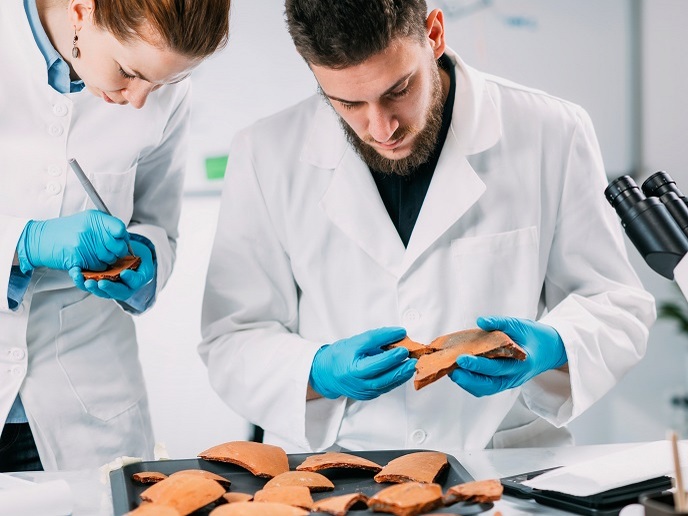Advanced science meets archaeology in the eastern Mediterranean
It’s been a long time since archaeology has ceased to be Indiana Jones style artefact hunting or the privately sponsored digging up of ancient monuments and cemeteries to retrieve pretty things for museums and collections. Nowadays, it rather seems to be an ambitious, global endeavour aiming to understand past societies and their interactions with their environments over the long timespan of humanity’s history, with as much research done in the lab as in the field. Within this context, the EU-funded Promised(opens in new window) project focused on creating a three-node network of excellence in Bioarchaeology and Archaeological Materials Science within the A.G. Leventis Chair in Archaeological Sciences(opens in new window) at the Cyprus Institute (CyI). Their project partners were the internationally leading advanced research centres in Archaeological Science at KU Leuven and the University of Cambridge.
A sustainable international network for bioarcheological research
The consortium focused on improving their doctoral programme to align better with the Bologna system and European higher education standards(opens in new window), as well as on organising research training and mentorship activities towards a community of practice. Promised also included public training events such as summer schools and specialised training courses, sharing best practice regionally. Moreover, it aimed at reaching out to the general public with activities for communities often excluded from such opportunities, such as the visually impaired, and through scientific publications. “We were really impressed by the wide range of expertise we could tap into, and very grateful for the outstanding collegial commitment of our advanced partners to the project, going well beyond the requirements of the grant agreement,” states project coordinator Thilo Rehren. “Cambridge and Leuven are proud to have been able to develop the trajectory of such an outstanding partner and have equally learnt much about archaeological science in its eastern Mediterranean context from our colleagues while laying the foundations for exciting further collaborative and interdisciplinary initiatives,” adds Cyprian Broodbank, professor at Cambridge University and project partner.
A legacy for the archaeological science of the future
Although the COVID-19 pandemic has been a major unexpected challenge for the project’s development, it surprisingly contributed to its unpredicted expansion. “The switch to the online delivery of the courses was highly rewarding, as instead of an expected maximum of 50 in-person participants for a training course addressing field archaeologists, we reached literally thousands,” explains Rehren. “These courses are now online available for years to come, again something not possible with the traditional in-person delivery.” The key legacy for the team is to maintain the annual archaeological science summer schools in Cyprus, which proved highly popular for emerging scholars from the Eastern Mediterranean and the Middle East (EMME) region, who often are not able to travel to central or northern Europe for such courses. Similarly, they will maintain the three-yearly International Congress on Archaeological Sciences in the EMME(opens in new window) and will also continue building open-access online resources in archaeological sciences, such as SrIsoMed(opens in new window), under the aegis of the A.G. Leventis Chair in Archaeological Sciences. The team aspires to expand its professional networks through new collaborations and develop CyI into a regional hub for archaeological sciences. They will focus on further integrating the many different scientific disciplines at play into a ‘One Science’ approach for the benefit of archaeological research and wider human understanding, one also deeply committed to the principles of open access and open data.



